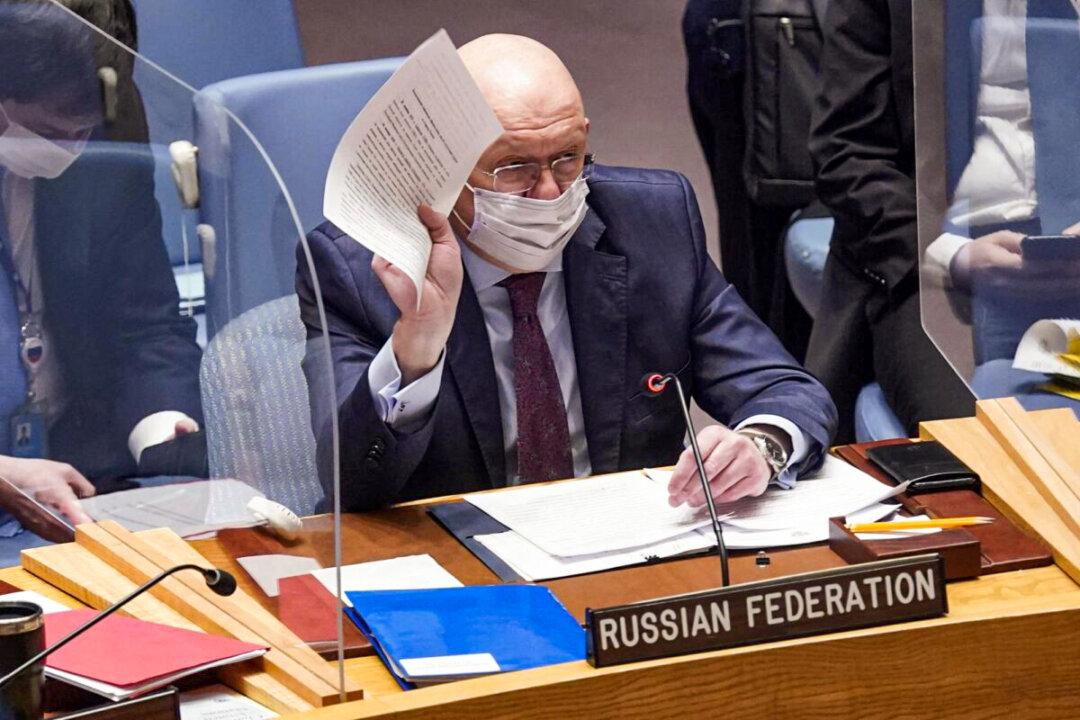Russia vetoed a draft resolution of the United Nations Security Council to condemn Moscow for its invasion of Ukraine and to oust it from the organization on Feb. 25. Three other nations abstained from voting, while 11 voted in favor.
Russia is allowed to veto any vote at the United Nations (U.N.) as it is a permanent member of the U.N. Security Council. The other permanent members are the United States, UK, France, and China.




